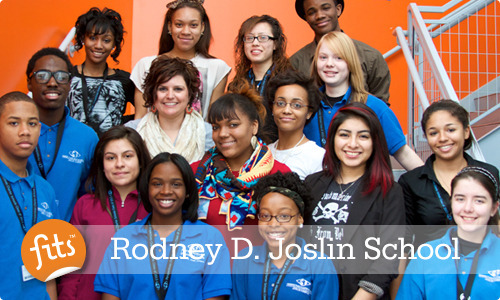Susan Scott's Blog, page 102
April 15, 2013
Fierce Tip of the Week: Speak to the Unspoken
Part of having conversations that go deep is the ability to identify when, in a conversation, there is something that is being unsaid. This is about obeying your instincts.
Some of the time, you may have a physical reaction. Whether it is the hair on the back of your neck or goose bumps on your arm, it is a hint that something is off.
Being aware of what is happening to you both physically and mentally in a conversation is where real richness can lie if you pay attention. That awareness is the first step.
The second step is this week’s Fierce tip. This week, speak to what is being left unspoken in a conversation, even if it is minor, and resist the temptation to skip over it.
Instead, dig deeper with those you are speaking with, get curious, and ask questions. The goal is to surface what is lingering out in the atmosphere, waiting to be called to light.
April 12, 2013
Fierce Resource: Decision Tree Model vs. Effective Delegation
This week’s Fierce Resource was first published on the Tuesday Consulting website. Decision Tree Model vs. Effective Delegation shares how to use the Fierce Delegation model, a module from the Fierce Conversations training, effectively.
“How do you delegate tasks? Are you completing leaf tasks for your employees and leaving them powerless and frustrated? Do your employees ask you every 5 minutes, “Can we do this?” If so, then you should share this model for “effective delegation” with them and relieve some headaches for you.”
To read the full blog, click here.
April 10, 2013
The Downside of a Culture of Nice
I remember when I first started at a previous job and thought, “Wow, everyone is so happy and kind here all the time”. On a typical day, my boss would say good morning to me, remark on how dim it was in the office, and flip on a light. She would then ascend the stairs to her office whistling.
When I walked into my 90-day review I felt confident about my work. I thought I understood what I had been doing well and where I needed to grow. What I didn’t expect was for my manager to have a list of situations where she felt I didn’t listen. “Remember all of those times I turned on the light? I was telling you to put more lights on every day.”
I had completely missed the message.
The issue with a culture of nice is that we talk around topics instead of directly to them. When you do that, the chance to give feedback and grow are completely lost. Instead of having a conversation with me about keeping the office brighter, she hinted at it. This left her frustrated and both myself and the office in the dark.
After my review, the feeling in the office completely shifted for me. A sunny statement was no longer just that. What did she really mean when she said good morning? Not only that, I found myself avoiding having direct conversations, all to maintain a “positive” environment. When faced with working day in and day out in that type of culture, I decided to leave the company.
Does your office suffer from a culture of terminal niceness?
April 8, 2013
Fierce Tip of the Week: Keep It Simple and Be Direct
I have learned over the years, in both my professional and personal life, that the best way to be direct is to keep it simple. Get to the point and get on with it.
This week’s Fierce tip encourages you to do just that. When you have a conversation speak to the heart of the matter, don’t beat around the bush, mince words, beg the question, hem or ha, or double-talk.
You might be surprised by how efficient being direct and simple can be.
April 5, 2013
Fierce Resources: Teaching Teens Social and Emotional Intelligence Skills
Yesterday, we shared a video, produced by student Lizz Ortiz, about how fierce is impacting the students at Rodney D. Joslin School. This week’s Fierce Resource supports the work that Fierce in the Schools is doing with Director, Angela Brooks-Rallins, at the Joslin School.
Teaching Teens Social and Emotional Intelligence Skills was first published on Daniel Goleman’s LinkedIn blog. In this piece, he explores how important these types of skills are to our future generations.
“As more learning takes place in group and team settings, many teachers have observed that unless we help them tackle personal and social challenges, many will never fully engage and will not fulfill their potential. The good news is that the team approach to teaching emotional intelligence skills has shown great promise. If you can get teens to work together toward a common goal, then you have very easily grasped a way to help them see the value of emotional intelligence, and to help each other along.”
To read the full blog, click here.
April 3, 2013
Fierce in the Schools: Rodney D. Joslin School Students Share Their Stories
In March, Fierce hosted our first Fierce Summit. While at the Summit, Fierce Founder, Susan Scott, took to the stage to share her vision and mission for our Fierce in the Schools (FITS) division: to provide the education community with tools to differentiate the graduates of their schools, both K-12 and at the university level.
Fierce also had the pleasure to share a video, produced by Lizz Ortiz, a student at Rodney D. Joslin School, that shows how Fierce Conversations training is impacting the day-to-day lives of students at the school, where Principal Dr. Angela Brooks-Rallins is utilizing the Fierce Field Guide to change the lives of her students and faculty.
We want to take this opportunity to share this video with you! Here it is: http://www.youtube.com/watch?v=y6rgFFFaOcM
Educators, have you seen Fierce impact the lives of your students?
April 1, 2013
Fierce Tip of the Week: Own Your Point of View
When I first started at Fierce, I was repeatedly told by our CEO, Halley Bock, and my colleagues that if you work at Fierce you are expected to “show up”.
At first, I thought well…duh. If you are hiring me, I promise to come to the office and do my work. However, my time here has taught me that they weren’t just talking about being physically and mentally present; they were talking about a more holistic approach – to truly “show up” with my unique thoughts and opinions.
This week, one way you can be present and show up inside your organization is to own your point of view. Have the courage to voice your specific opinion about an idea with others, even if it is an outlier.
If you share your opinions easily, perhaps flip the switch and ask those you rarely hear from how they see an issue.
Owning your point of view also means broadening your scope by learning from others.
March 29, 2013
Fierce Resources: The Comparison Trap
Fierce facilitators and partners, Jeff Gaines and Jim Sorenson, have just published a new book Never Enough Nation: Managing your Health, Wealth and Stress. This week’s Fierce Resource was written by Jim Sorenson and was first published on the Never Enough Nation blog.
The Comparison Trap, explores how tied our own self worth is to others. Jim explores the idea of self-esteem through comparison, in which if we want to feel good about ourselves we label how others differ as bad, and vice versa.
“I fell into the comparison trap early in life. I didn’t know that who I was and what I had was not enough until it was pointed out to me. All of a sudden, my toys, my house, my clothes, and my little skinny body were not good enough. This notion followed me throughout my life. I compared my grades, my pimply skin, my car, my rate of promotion, my stats, etc. My self-worth lived and died at the feet of comparison.”
To read the full blog, click here.
And to learn more about their book, Never Enough Nation: Managing your Health, Wealth and Stress, click here.
March 27, 2013
3 Commitments to Speak to People Rather Than About Them
In partnership with Fierce in the Schools, the Learning Forward Blog publishes an exclusive article for our Fierce blog. Our guest writer is Stephanie Hirsh, the Executive Director of Learning Forward, Please visit the Learning Forward Blog, hosted by Education Week, to read more of their blog posts.
Lately, I have experienced several challenges that have made me reflect on one of the staff agreements we list at Learning Forward: Speak to people rather than about them. Do not say something about someone who is not present unless you intend to share it with them and are seeking help in clarifying your request.
Given my recent challenges, I asked myself – what can I do, as a leader, to build a climate where all people feel comfortable in sharing their point of view, and would not consider it necessary to represent the views of others?
I read several articles on the subject and did some soul searching. I was reminded that I can only control my own actions. So I am committing myself to the following three actions:
1) Walk the talk.
I will limit my conversations with others, about colleagues who aren’t present, unless I am committed to speaking only for the purpose of gaining clarity and assistance. When I turn to a colleague for such help, I will report back on the fulfillment of that commitment and express appreciation for the coaching. Circling back demonstrates that the purpose of our conversation was to solve a problem rather than to vent or gossip.
2) Be visibly open to new ideas and different points of view.
How I handle new ideas and different points of view, as a leader, helps to create an environment where people will feel comfortable initiating conversations about topics they perceive as difficult. While I try to be open to new ideas, I must admit I don’t always get it right.
When I recognize that my initial reaction is not the one I wanted to portray publicly, I will call attention to my mistake and be clear that I am holding myself and others to an expectation of openness. I will work hard to respond like a colleague of mine, who recognizes her own struggles to be open-minded and sometimes begins her responses by saying, “I am trying to love this idea…give me time.”
3) Ask others to honor the agreement.
Recently, I’ve had more than one trusted colleague convey to me what others in the organization are saying. In some cases, these representations of others’ points of views seem harmless and perhaps even helpful. And when colleagues don’t feel they can come directly to the person with whom they have conflicts, there is no opportunity for both parties in a relationship to clarify misunderstandings or address real problems.
When someone attempts to represent another person’s point of view to me, I will remind him or her of the organization’s stance on this value. While it can be intimidating to go to a supervisor to express a concern, unhealthy work habits create long-term problems in relationships and results.
These are three steps I commit to take to reduce the strain I am experiencing, relating to our staff agreement: Speak to people rather than about them.
I am curious to hear – what actions would you recommend to decrease the need to represent others’ views and create a culture that supports, honors, and reacts positively to problems and concerns expressed from within?
March 25, 2013
Fierce Tip of the Week: Imagine
One of my favorite books when I was a child was And To That I Saw It on Mulberry Street by Dr. Seuss. Now that I have my own little girl, I have started to read it to her and have found myself gaining a new found appreciation for it.
The book centers on a child, Marco, who has a magical ability to see beyond the facts of daily life and turn any situation into an exciting one – with just his imagination. Marco’s father, who is puzzled by his son, asks Marco to tell him what he sees every day on his walk home from school. When a plain horse and wagon are on Mulberry Street, Marco sees more than that. Marco’s imagination takes the horse and wagon and transforms them into a reindeer pulling a sleigh to a zebra pulling a chariot to an Elephant pulling a great big brass band.
Marco sees the possibilities.
This week I encourage you to put your adult brain aside and look at the world, not as it is but what it could be. Refuse to see just a plain horse and wagon. Imagine more.
Susan Scott's Blog
- Susan Scott's profile
- 861 followers













